Afghanistan War, CIA Sponsored Terror, Civil Liberties, Criminalizing Dissent, FBI Intrusion, Gaza, Guantanamo, Habeas Corpus, Human Rights, Military Tribunal, NSA Spying, Political Prisoner, Surveillance, Targeting Muslims, Torture, War Resister
Podcast: Play in new window | Download
Updates:
- Attorney Michael Smith Remembers 69th Anniversary of U.S. Dropping A-Bombs On Japan
- Atomic Diplomacy: Hiroshima and Potsdam: The Use of the Atomic Bomb and the American Confrontation with Soviet Power
—–

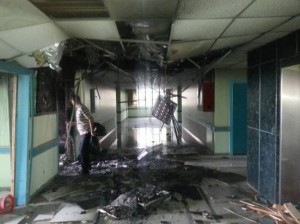
The Logic of Israeli Violence
Ongoing reports of Israel engaging in senseless cruel violence against Palestinian people in Gaza throughout Operation Protective Edge is not a random bombing campaign but a strategic war experiment in colonial management as Greg Shupak explains in his recent article The Logic of Israeli Violence. Shupak points out the attacks on civilians fleeing for shelter, the bombing of the medical infrastructure, fishing boats and wheat mills, killing Arab speaking journalists are in the larger plan of ethnicide and to render the Palestinian people dependent. His article reminds readers that there is a measured plan of attack to systematically erase the historic memory of the Palestinian society.
Greg Shupak:
- There’s good reason to believe according to some reporting by 97 Magazine and Max Blumenthal that the Israeli security forces knew quite perfectly well the teens were almost certainly killed as soon as they were abducted and yet they carried on this charade of pretending that they could be rescued in some way.
- Rocket fire from Hamas didn’t start until after Israel carried out strikes within Gaza, and carrying out various forms of killing Palestinian civilians and or people they described as militants.
- The rockets were a response to Israeli violence.
- Israeli propaganda has insinuated that these tunnels have in fact been used to kill Israeli civilians or that they may well be, but that simply has not happened.
- If the aim was to destroy tunnels, Egypt which is being ruled by a brutal regime, in its own right, was able to get rid of these tunnels without killing huge numbers of civilians.
- Israel’s aim vis a vis Gaza is to isolate Palestinians there from the outside world render them dependent on external benevolence and at the same time absolve Israel of responsibility toward them.
- The thesis I put forth about the current violence of Operation Protective Edge, is that one way Israel is attempting to achieve that goal, that goal of Jewish supremacy in historic Palestine with as much land as possible and as few Palestinians as possible is to aim to obliterate Palestinians as a people with the capacity to live independently in their homeland.
- The pattern of Israeli violence . . . is not only to kill and maim Palestinians but to impede their capacity to live autonomously in historic Palestine.
- It’s a settler colonial project.
- This is part of a longer term pattern. If you look at the work of Dr. Sarah Roy of Harvard she has documented extensively what she calls the deliberate de-development of the Gaza Strip economy. She has warned that Gazans are at risk for mass starvation.
- Five hospitals have been shut down. 24 health facilities have been damaged.
- We also that there’s been direct strikes on hospitals from Israeli fire.
- The ability of Palestinians to care for themselves has very much been undermined.
- Two thirds of Gaza’s wheat mills are inoperative, 3000 of its herders are in need of animal feed. We’ve seen fishermen attacked, we’ve seen attacks on agricultural sites, these are all part of those processes that Sarah Roy has talked about in the longer term.
- If religion is way for a cultural group to understand its identity then attacking the cultural institutions of that religion are ispo facto an attack on the people to have an identity.
- When you attack an educational institution you undermine the ability of a people to educate their young, to train them for future work, to train them to think critically, to develop artists, and inventors and so on.
- This to me is a very significant way for stifling a cultural groups independent existence.
- At its simplest, Israel can be seen as a giant military base for the United States.
Guest – Greg Shupak, a writer, activist and PhD candidate at the University of Guelph’s School of English and Theatre Studies. He teaches Media Studies at the University of Guelph, Ontario, Canada.
——–
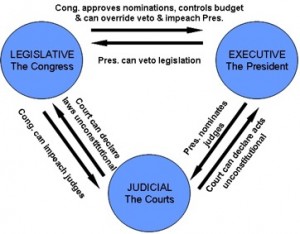
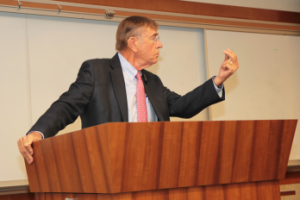
The National Security State: The End of Separation of Powers
Retired Professor of Law from Duke University Michael Tigar joins hosts to talk about his recent article The National Security State: The End of Separation of Powers published in the latest Monthly Review Magazine. Michael has explained how the Executive branch of government has come to dominate both the Judicial and Legislative branches of the United States government. Attorney Michael Tigar has been working on social issues for many years, his books include Law and The Rise of Capitalism, Fighting Injustice, and Thinking About Terrorism: The Threat To Civil Liberties In Times of National Emergency.
Attorney Michael Tigar:
- The basic principle of constitutional government that is established in our Constitution is that the actions of the legislative and executive branches, particularly the executive branch, are always reviewable by independently appointed judges and that the legality of whatever the executive branch does harms any protected interest, citizen or otherwise ought to be reviewable in the courts of the United States.
- The main thing about this is the harm to the judicial branch is in a real sense a self inflicted wound.
- That is to say judges confronted with assertions of executive power have proven inadequate to the task of restraining exercises of executive power
- We recall the massive illegality of the Japanese relocation at the beginning of the Second World War.
- It is now been shown that the premise upon which that relocation took place confining Japanese-Americans in concentration camps was false.
- At the time the Constitution was being debated Patrick Henry opposed the adoption of the Constitution on the ground that the ideal that independent judiciary could act as an effective check upon the exercise of executive power particularly military power was bound to be dis-proven in history.
- Law is legal ideology. That is to say its erected around social relations. In every time of recorded history there is a sense in which the formal guarantees that rules of law make about individual rights are simply lies the regime tells the people in order to sustain itself.
- That was the burden of book I wrote called Law and The Rise of Capitalism.
- The ideal that you rally people to the cause of social change by promising them liberty is also not new.
- The Cherokee people of Georgia read the Constitution and they said Aha, the Constitution guarantees that any group or individual can exercise certain social rights.
- So they drafted a Constitution for their nation and set up institutions then they brought suit against the state of Georgia to enforce these rights, that the letter of the American Constitution guaranteed that.
- What did Chief Justice Marshall say? What a minute, these are inferior and subject people. When the Constitution gives the right to all people, persons, citizens whatever, to bring lawsuits under Article 3 and to bring them to us, it wasn’t talking about these people.
- Michael Ratner you and others, courageous lawyers who have been struggling to get reviewablility of unlawful executive action should not give up the fight.
- The kinds of effort you make deserve support and turn out in historic context to be important.
- Historically the role of lawyers has been to articulate people’s claims for justice.
- What Edward Snowden and Julian Assange have done is reveal to the world fundamental defects in the way that the American political society has been operating and yet rather than saying thank you in some form of another, the government is hell-bent on prosecuting them.
Guest – Michael Tigar, a research professor of law. He holds expertise in Constitutional Law; Supreme Court; French legal system; criminal law and procedure; human rights. He is fluent in French. Tigar represented Terry Nichols in the Oklahoma City bombing trial. One of the most renowned lawyers in the country today, he has argued seven cases before the U.S. Supreme Court and more than 100 appellate cases. Tigar has written extensively about litigation, aspects of trial practice, criminal law, the death penalty, and the role of the criminal defense lawyer. His books include Fighting Injustice (ABA, 2002); Federal Appeals: Jurisdiction and Practice; and Examining Witnesses. In addition, he has written several plays about famous trials. Throughout his career, Tigar has been active in pro bono cases, the American Bar Association, continuing legal education programs, and international human rights. During the apartheid period, he went to South Africa to train black lawyers. Prior to joining AU, Tigar served as a professor at the University of Texas Law School.
—————————————————————————————–

Please help support Law and Disorder, the show is now a sponsored project of Fractured Atlas, a non-profit arts service organization. Contributions for the charitable purposes of Law and Disorder must be made payable to Fractured Atlas only and are tax-deductible to the extent permitted by law.
Censorship, CIA Sponsored Terror, Civil Liberties, Criminalizing Dissent, FBI Intrusion, Green Scare, Human Rights, NSA Spying, Political Prisoner, Supreme Court, Surveillance, Truth to Power, War Resister
Podcast: Play in new window | Download
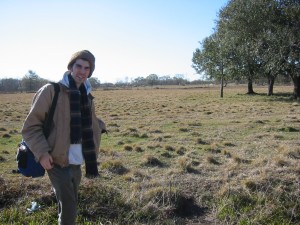
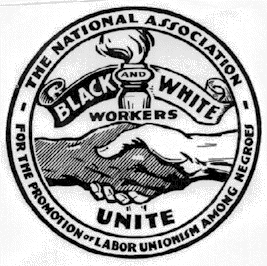
Folk Music, Labor Movements and Radical Politics
Especially in times of revolution or crisis, the role of music has been a defining element in telling the stories of labor movements, against the war in Vietnam and civil rights. Folk musician Eli Smith gave a presentation at the Left Forum this year on satirical songs of the IWW including the work of Joe Hill and many others. The early works of Pete Seeger, Woody Guthrie are a great place to start along with the lesser known work of John L. Handcox, and the Southern Tenant Farmers Union. It was the first racially integrated union in the South that used indigenous folk music to fight for the rights of sharecroppers.
Guest – Eli Smith, a banjo player, writer, researcher and promoter of folk music living in New York City. Eli is a Smithsonian Folkways recording artist and produces two folk festivals annually, the Brooklyn Folk Festival in the Spring and Washington Square Park Folk Festival in the Fall. He has appeared as a guest on terrestrial radio stations such as WBAI, WNYC, WKCR and WDST in New York and KPFA, KPFK and KUCI in California. Eli has presented panels and discussions on folk music at the Left Forum conference at Cooper Union and at the Podcamp podcasting conference in New York City. He has performed and recorded with his old time string band The Down Hill Strugglers, Peter Stampfel, John Cohen and Sam Shepard. The Down Hill Strugglers were recently featured on the soundtrack album to the Coen Brothers’ film “Inside Llewyn Davis,” which was produced by T Bone Burnett.
———
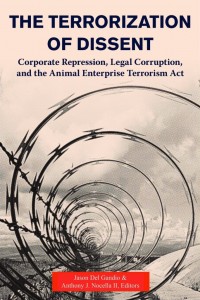
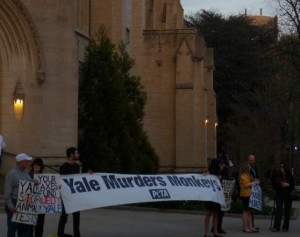
Terrorization of Dissent: Corporate Repression, Legal Corruption, and the Animal Enterprise Terrorism Act
Terrorization of Dissent: Corporate Repression, Legal Corruption, and the Animal Enterprise Terrorism Act is a collection of essays by lawyers, scholars and activists that includes interviews with those who suffered from the AETA’s conspiracy provisions. Editors Jason Del Gandio and Anthony Nocella have compiled essential information to document how the Animal Enterprise Terrorism Act is a clear violation of the First Amendment. Specifically, the book documents how corporations and the U.S. Government conspire under this law to prosecute animal rights activists and acts of civil disobedience involving environmental issues under the specter of terrorism. Right now, according to Nocella and Del Gandio, corporate profit determines what can or can’t be done to animals and the environment.
Anthony Nocella:
- The importance of this act has really shaped how the government looks at one of the larger movements in the United States.
- The animal advocacy, animal rights, animal liberation movements have been demonized and stigmatized as terrorists, through the media and the government through this particular act.
- What are the effects of this law? Who influenced this act to be pushed into law? It wasn’t really government.
- There were main organizations that pushed this law into effect. The Animal Enterprise Protection Coalition, The Animal Legislative Exchange Council (ALEC) The Center for Consumer Freedom.
- Any logical CEO of a corporation will say I don’t want anything to threaten my product.
- That product in the case of animals is any where from circuses to sea world, to clothing, from leather to fur, to also eating.
- We can do away with circuses and fur and a lot of different clothing, but one thing we can’t live without is food.
- We have to look at the real conflict and that’s between food.
- Do we want people to have a plant based diet or an animal based diet?
- There are hundreds of billions of dollars protecting that paradigm of people eating meat, fish and chicken.
- If anyone threatens that industry, under the Animal Enterprise Terrorism Act, you’re deemed a terrorist.
- To wash away all the rhetoric that is what this law is specifically speaking about. That’s why it was expanded from the Animal Enterprise Protection Act to the Animal Enterprise Terrorism Act.
- CCR Condemns Terrorism Indictment for Activists Freeing Mink from Fur Farms
- The point is – regarding the book, law schools, political science departments, think tanks, need a text that comes from a variety of viewpoints specifically looking at the Animal Enterprise Terrorism Act.
- I think we have understand the difference between how corporations are influencing laws and literally writing the bills into laws and into effect, while political repression is really law enforcement and senators influencing laws.
- We’re not criminalizing activists like we did in the 70s and 80s, now we’re labeling them as terrorists.
- National Weekend of the Animal Enterprise Terrorism Act – Sept 5-6-7, 2014
- Website – The Institute For Critical Animal Studies
Guest – Anthony Nocella II, Ph.D., an intersectional academic-activist, is Senior Fellow of the Dispute Resolution Institute at the Hamline Law School, co-founder and Director of the Institute for Critical Animal Studies, and editor of the Peace Studies Journal. He has published more than sixteen books including Terrorists or Freedom Fighters?: Reflections on the Liberation of Animals (2004), Call to Compassion: Religious Perspectives on Animal Advocacy (2011), and Defining Critical Animal Studies: An Intersectional Social Justice Approach for Liberation (2014).
————————————————————————————-
Afghanistan War, CIA Sponsored Terror, Civil Liberties, Criminalizing Dissent, FBI Intrusion, Guantanamo, Habeas Corpus, Human Rights, Military Tribunal, NSA Spying, Political Prisoner, Prison Industry, Surveillance, Targeting Muslims, Torture, Truth to Power, War Resister
Podcast: Play in new window | Download
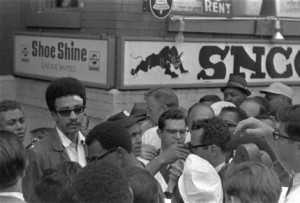

Campaign Demanding Proper Health Care For Incarcerated COINTELPRO Target Imam Jamil Al-Amin (H. Rap Brown)
A campaign was recently launched demanding immediate health care for political prisoner Imam Jamil Al-Amin, formerly known as H. Rap Brown. Once the chairperson of the Student Nonviolent Coordinating Committee and minister of justice for the Black Panther Party, Al-Amin was one of the original four targets of the FBI’s infamous COINTELPRO. Now 70 years old, he has been held in a federal prison at Florence, Colorado since 2006 where he is serving a life sentence for what many claim was the wrongful conviction in 2002 for shooting two deputy sheriffs. At the time, four leading Muslim organizations – CAIR, the AMC, ISNA and the Muslim American Society – issued a joint statement: “The charges against Imam Jamil are especially troubling because they are inconsistent with what is known of his moral character and past behavior as a Muslim.”
Al-Amin has multiple health issues have rapidly accelerated, including dental problems, a swollen jaw, broken teeth and swollen legs, ankles and feet, and has lost 30 pounds in just a few weeks, likely the result of recently-diagnosed cancer. Recently, former U.S. Attorney General Ramsey Clark visited Al-Amin.
Attorney Karima Al-Almin:
- I met Jamil on July 1st 1967. I had graduated from college and started a job on that day. He walked into the job where I was to see someone who he was staying with.
- At that time he was under house arrest and he could only stay in the borough of Manhattan, the Bronx and then William Kunstler’s house up there in Westchester county.
- He invited me to go to lunch. The lunch was with Louis Farrakhan. So I met him on the same day, we joke about that but I married Jamil.
- In May of 1967 he was elected chairperson of SNCC Student Nonviolent Coordinating Committee.
- Based on the fact that he didn’t appear for trial in Maryland for inciting to riot charge which was later dismissed, he was put on the 10 most wanted list in May 1970.
- For 19 months he was being sought and not found but then he was found and capture in October 1971. He was attempting to clean up New York City’s drug problem.
- There was an H. Rap Brown Anti-Dope Campaign. As a result he was captured in what was labeled as an “armed robbery.” He did go to trial and William Kunstler and Howard Moore defended him.
- He was given a sentence of 5-15 years. He served 5 years in the New York State prison system and then he got out in 1976.
- After getting out in October 1976 he can come to Atlanta where I had moved.
- He spent years, establishing a Muslim community again cleaning up the neighborhood making it safe for families and children.
- In May of 1999 he was stopped which ended up being an illegal stop outside of Atlanta city limits. He was charged with driving a stolen car which he did not know about.
- In January of 2000 he was given a date to appear in court on those charges there was a storm and it was postponed. He didn’t know he was supposed to return and a warrant was issued in March 2000. That’s when the incident happened.
- A Fulton County deputy was killed and one was shot and then we had the trial in 2002. There were so many problems with the trial. There were so many constitutional violations during the trial. As a result he was found guilty in March 2002 and given a life sentence without the possibility of parole.
- Georgia in 2003 tried to get him transferred and held in a federal facility, but it didn’t come to happen until July 2007. They were moving him based on his popularity.
- Georgia (the state of) is paying a per diem to the Federal Bureau of Prisons for him to be housed.
- It goes back to what he thought was a dental problem about a year and a half ago. He developed abscesses. He was unable to get out of bed.
- A petition has already been sent to President Obama, Eric Holder and Charles Samuels.
- Call ADMAX – 719-784-9464.
- Create an email and fax flood. Email FLM/execassistant@bop.gov or use the form at http://www.bop.gov/inmates/concerns.jsp (location Florence ADMAX USP). Fax 719-784-5290. Jamil Al-Amin, #99974555
- He dared to step out when he was 23 years old to speak out about injustices and make a difference.
Guest – Attorney Karima Al-Amin is an attorney at law and the wife of political prisoner Imam Jamil Abdullah Al-Amin. In addition to her private practice, Mrs. Al-Amin continues to work with attorneys in appealing her husband’s conviction and in working on his civil lawsuits challenging First Amendment and religious violations. Mrs. Al-Amin is a member of several legal and community organizations, including the American Immigration Lawyers Association (AILA), the Clarkston Business Association, and the Georgia Association of Muslim Lawyers (GAML).
——
US Attorney General Ramsey Clark:
- I met first through FBI memos, a stack that reached floor to ceiling. He had a wonderful talent to irritate the FBI.
- The country needs that sort of skill. So I got a lot of memos before I even met him.
- He committed the supreme offense in the hierarchy of offenses of the FBI that is he embarrassed the bureau by making them look foolish cause they couldn’t catch him.
- The legal staff were cheering him on. He made our day with narrow escapes. After this Congress enacted this absurd statute in his honor that shows he was a productive citizen concerned for our welfare.
- He’s big strong tall guy and he has to duck under that door on the other side of that glass that you meet him through, he looked smaller.
- Usually his energy level is very high. His energy level is way down, he looked frail in spite of his large frame.
- Went back Sunday and his condition was the same, confirmed. He’s got a real health problem that needs to be addressed.
- I think ideally he’d go to the Mayo Clinic first, get the thorough work up and diagnosis and everything. If its going to be long range treatment get him over to North Carolina.
- The main thing is he needs the help of caring people from all over the country. We have to organize that to pressure the United States to do the only moral thing.
Guest – Ramsey Clark, former Attorney General of the United States, under President Lyndon B. Johnson. The first Attorney General at the Justice Department to call for the elimination of the death penalty and all electronic surveillance. After he left the Johnson administration, he became a vociferous critic of the Vietnam War and continued on a radical path, defending the underdog, defending the rights of people worldwide, from Palestinians to Iraqis, to anyone who found themselves at the repressive end of government action.
——-
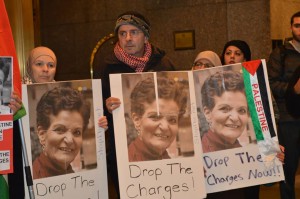
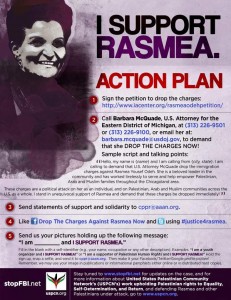
U.S. Government To Prosecute 67-year-old Palestinian-American Rasmea Odeh
In the fall of 2013, the Department of Homeland Security arrested Rasmea Odeh, a 67 year old Palestinian American community activitist and teacher in her Chicago home for failing to disclose a 1969 conviction in an Israeli military court. She was charged with unlawful procurement of naturalization. Odeh had allegedly failed to disclose her time in an Israeli prison 45 years ago. In 1969 Rasmea Odeh, her father and fiancee were brutally tortured in an Israel relating to a bombing at a Jerusalem supermarket. Israel extracted a confession from Odeh, and she spent 10 years in an Israeli prison where she was tortured and sexually assaulted.
Odeh is Associate Director of the Arab American Action Network and leader of that group’s Arab Women’s Committee. The events bring together disenfranchised women, mostly recent immigrants, from Arabic-speaking countries. Odeh is scheduled for trial at a Detroit Federal court in September. If convicted she could be imprisoned, have her citizenship revoked and be deported. Human rights campaigners in the United States are calling on the Obama administration to drop charges against Rasmea Odeh, a Palestinian-American community organizer in Chicago who is accused of lying on a citizenship application two decades ago.
Attorney Michael Deutsch:
- She was arrested Israel military and secret police in February of 1969. Her family, her father and two sisters were also arrested, taken out of the house in the middle of the night.
- She was then transported by herself to a prison in Ramallah. On the way she was brutally beaten, when she arrived at the prison she was beaten again to the point where her whole body turned black.
- She was then transferred to another prison which is called the Russian compound which is in the West Jerusalem.
- There she was horrifically beaten subject to electronic torture, alligator clips to her breasts and genitals.
- Prisoners and soldiers came into her room, she was raped repeatedly. She was raped with sticks. She was denied food, denied sleep, this went on for 45 days until she gave in and confessed.
- Her father was brought in a room with her and they said her father was going to rape her. Her father of course refused and they beat her father to the point of unconsciousness and they dragged him out.
- She was accused of being involved in two bombings one at a British counsel and one at an Israeli grocery store.
- When she was brought into an alleged court, which was a military court run by soldiers, she renounced her confession and said that she was innocent. That was ignored and she was convicted of these bombings and being a member of an illegal organization and given a life sentence.
- Ultimately in 1979, she was traded with 70 other Palestinian prisoners for the return of an Israeli soldier where she was taken to Syria, then Lebanon then to Jordan where she lived til 1994. She obtained a VISA to come to the United States.
- Basically for almost the following ten years she’s been working as a community activist in Chicago particularly with the Arab-American Action Network.
- In 2010 there were all these raids by the FBI toward anti-war activists and the executive director of the AAAN. He was subpoenaed to a grand jury after the FBI raided his home and took all his papers.
- They claim that he was providing material support for the PFLP and as a result the whole AAAN was put under investigation and the grand jury subpoenaed all the documents of the organization.
- As a result of this investigation into the AAAN, the US attorney in Chicago sent word to Washington that they wanted to get Rasmea’s files from Israel.
- In a year or two years they got the records or alleged to be her records of arrest, conviction and sentence by the Israeli military court.
- I don’t believe a conviction or arrest by the IDF and a conviction by an Israeli military tribunal is consistent with International Law, fundamental fairness or due process.
- One of the things were going to say is that the conviction and arrest can’t be given any kind of credit in a U.S. courtroom because its fundamentally unfair and shouldn’t be considered.
- The question is whether she answered those questions with an intent to falsely procure her naturalization.
- I would add the judge in this case has been a fervent supporter of Israel since the 50s.
- The Israeli tribunals are not only based on torture but illegal occupation. They invade a people’s land and set up these military courts.
- The question in my mind in Rasmea’s trial is how are they going to keep out the issue of torture? Which is want they’re going to want to do.
- To support Rasmea Odeh, contact the Arab-American Action Network
- CCR Statement
Guest – Attorney Michael Deutsch, after clerking for United States Court of Appeals Judge Otto Kerner, Mr. Deutsch went into private practice, joining People’s Law Office in 1970 where he has represented political activists and victims of police and government civil rights violations. His advocacy has taken him all around the world, including to hearings in the United Nations. He has tried many civil and criminal cases in federal and state courts, and has written and argued numerous appeals, including several in the United States Supreme Court.
——————————————————

Please help support Law and Disorder, the show is now a sponsored project of Fractured Atlas, a non-profit arts service organization. Contributions for the charitable purposes of Law and Disorder must be made payable to Fractured Atlas only and are tax-deductible to the extent permitted by law.
CIA Sponsored Terror, Civil Liberties, Criminalizing Dissent, FBI Intrusion, Human Rights, Prison Industry, Surveillance
Podcast: Play in new window | Download
Updates:
——–

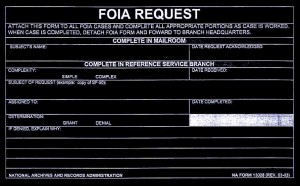
The Electronic Privacy Information Center, The NSA, FOIA Requests, And Wikileaks
The Electronic Privacy Information Center or EPIC is among a handful of organizations trying to reveal the massive surveillance of the National Security Agency. We talk about a few of EPIC’s most important cases being litigated that you may not have heard about. EPIC had filed a massive FOIA request on behalf of Wikileaks to the Criminal and National Security Divisions of the Department of Justice, and to the FBI asking for multiple records including any individuals targeted for surveillance for support for or interest in WikiLeaks. We talk about that and their lawsuit involving the NSA not being subject to FOIA requests plus a victory involving the Department of Homeland Security’s ability to deactivate wireless communications networks in a crisis.
Attorney Marc Rotenburg:
- The FOIA requests we made five years ago for the NSA Cybersecurity Authority was a request that we sent to the NSA, litigated in the district court and on appeal in the DC Circuit last Friday just a few days before the government’s brief was due, they contacted us and said they were disclosing to us the document we had been trying to obtain.
- This is National Security Presidential Directive 54 and that outlines all the cyber security authorities for the federal agencies.
- The scope of our work is very much driven by our mission. Our mission is to focus public attention on emerging privacy and civil liberties issues.
- The FBI wants to put together the next generation identification system which will be the largest biometric database in the world and we think the implications for privacy and freedom are just staggering.
- Google also retains everybody’s search histories.
- We also do a lot of open government litigation so people can learn about these issues and we do a lot of amicus briefs.
- In our organization there’s actually deep division about Wikileaks. Some people think Julian Assange is a hero and some people would like to see him arrested.
- What was interesting to us about the Wikileaks case – we did see a persons of expressions of support for Wikileaks as core First Amendment speech.
- We became very interested through the FOIA with how the federal government was apparently intervening with private companies, bank payment companies, cloud service providers and others to try to chill the ability of Wikileaks supporters to contribute to the organization, to get access to hosted documents.
- We simply believe it was wrong for the government to simply discourage people their support or even their opposition.
- With the FOIA, one of the things you’re trying to do is get information out to the public and hope that others find that its useful.
- We think its a fundamental obligation for any internet company that collects personal data to stand up to the government when there are court orders.
- Our other case in the DC Circuit – this concerns a technique used in San Francisco basically to shut down cell phone service among people who had gathered at a protest to object to the police conduct that I think resulted in the death of a person on the BART system.
- Pursuant to a secret policy known as Standard Operating Protocol 303, somehow the Department of Homeland Security got the local telephone service to shut down cell phone service in the region and people couldn’t communicate and the protest was effectively stopped.
- Our FOIA request was for the policy which we think has to be made public. You can’t have a secret procedure that so deeply implicates First Amendment freedoms.
- We went laser focused after that one document and the DHS was throwing up all these law enforcement exemptions, 7E and 7F involving techniques and methods saying this was vitally important to protect public safety which was an interesting argument too.
- Submit FOIA requests – if a government agency has a reason to withhold a record, the burden is on the agency to justify the reason for the withholding.
Guest – Attorney Marc Rotenburg, Executive Director of the Electronic Privacy Information Center (EPIC) in Washington, DC. He teaches information privacy law at Georgetown University Law Center and has testified before Congress on many issues, including access to information, encryption policy, consumer protection, computer security, and communications privacy. He testified before the 9-11 Commission on “Security and Liberty: Protecting Privacy, Preventing Terrorism.” He has served on several national and international advisory panels, including the expert panels on Cryptography Policy and Computer Security for the OECD, the Legal Experts on Cyberspace Law for UNESCO, and the Countering Spam program of the ITU.
—–
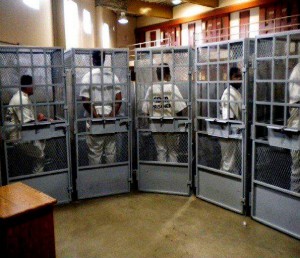

Hundreds of California Prisoners in Isolation to Join Class Action Lawsuit
Last year we spoke with attorney Jules Lobel about his lawsuit challenging long term solitary confinement in California prisons. Recently, a federal judge in Oakland California ruled to agree to consider as part of that lawsuit if long term isolation violates a prisoners’ Eighth Amendment rights. Prisoners in prolonged solitary confinement at Pelican Bay prison can spend 22 to 24 hours a day in a cramped, concrete windowless cell. Mostly, they’re there for their alleged connection to gangs and their refusal to become government informants.
Attorney Jules Lobel:
- Pelican Bay is a prison that holds over 1000 prisoners. It’s located on one of the most isolated sections of the United States coast line border between California and Oregon.
- It was deliberately placed there because most of the prisoners are from Los Angeles.
- It’s very hard for their friends and family to visit them.
- They spend virtually their whole day in an 80 square foot cell with no window.
- They virtually get no visitors, they can’t make any phone calls. They’re fairly isolated from the outside world and from each other.
- Many of my clients have been in this kind of cell for over a decade.
- California estimates there are about 225 that have been there for over a decade.
- A number of my clients have been there for over 2 decades.
- California puts them there not because they’ve done anything violent in prison, or in some cases they haven’t done anything violent outside of prison . . mainly drug offenses . . . but because they have an association could be very loose, could be because of having a tattoo or a piece of art work which suggests you’re in some way associated with a gang.
- The only way out was to become an informant and then you and your family were in grave danger of being killed or assaulted by the gang.
- Recently in California after 3 hunger strikes, pressure from the lawsuit, pressure from the legislature, has instituted some reforms so there are for some of the people a way at least to another solitaire prison or the general population.
- They come up for review once every six years in the system that’s currently in place.
- The Ninth Circuit court has said anything over 1 year is too long for reviews.
- There have been hundreds of law suits challenging various aspects of this situation in Pelican Bay, from the due process to they’re not given any chance to prove that they can get to its cruel and unusual punishment to keep people in there for 10-15-20 years.
- Now for the first time the judge has said I’m going to take this as a class action which means I’m going to look at the general policies that California is instituting and if we were to win, try to change the system.
- Our argument is that these conditions are cruel and unusual to keep people in for this long of time.
- We said we need to meet with all of our clients all together. We can’t meet with one individual then another individual.
- The state said that’s impossible, these people are so dangerous you can’t possibly meet with them all together, but the judge ordered it.
- We got a meeting, if you can imagine the cell that Hannibal was in? They put 10 of these cages side by side, and they put us in a big conference room. They mandated that we had to wear flak jackets. We were seated at a table with Marine outfits.
- What it really is is to force these guys to become informants, to make it as cruel as possible and the only way out is to become an informant.
- It essentially alters your personality. You die a social death.
- Our case, if we were to win would be the beginning of the death knell of solitary confinement in this country.
- 80 thousand prisoners as we speak are in some form of solitary in this country.
- One of the things about this case is that it requires substantial funding and we’re always looking for people to help with funding the case.
Guest – Attorney Jules Lobel, has litigated important issues regarding the application of international law in the U.S. courts. In the late 1980’s, he advised the Nicaraguan government on the development of its first democratic constitution, and has also advised the Burundi government on constitutional law issues. Professor Lobel is editor of a text on civil rights litigation and of a collection of essays on the U.S. Constitution, A Less Than Perfect Union (Monthly Review Press, 1988). He is author of numerous articles on international law, foreign affairs, and the U.S. Constitution in publications including Yale Law Journal, Harvard International Law Journal, Cornell Law Review, and Virginia Law Review. He is a member of the American Society of International Law.
——————————————————————-
CIA Sponsored Terror, Civil Liberties, Criminalizing Dissent, FBI Intrusion, Habeas Corpus, Human Rights, Iraq War, NSA Spying, Political Prisoner, Prison Industry, Supreme Court, Surveillance, Targeting Muslims, Torture, War Resister
Podcast: Play in new window | Download
Updates:
- Michael Ratner: Guantanamo Bay Prisoner Exchange
- Five Taliban In Exchange For A U.S. Prisoner Held In Afghanistan
- 149 Detainees Left In Guantanamo Prison – 88 Cleared For Release
- Michael Smith Reports Back On Highlights At the 2014 Left Forum
——
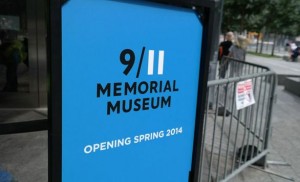
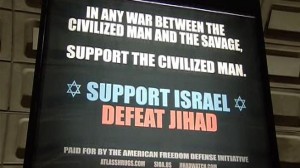
9/11 Memorial Museum Protests
There were many protests during the official opening of the 911 Memorial Museum. Muslim communities and other groups have voiced concern about the film in the musuem titled “The Rise of Al-Qaeda” and how it fails to adequately discern between Al-Qaeda and those of the Islamic faith. Meanwhile, the museum’s official response is that the film is objectively telling the story of what happened.
Donna Nevel:
- We came together because of a concern about a video they were showing called The Rise of al-Qaeda. It’s a 7 minute documentary and the concern is about the problematic language that its using. It makes it seem as if the acts of 9-11 are equated with Islam.
- Our feeling is that the film needs to be edited and could exacerbate an already anti-Muslim climate.
- Quoting criticism – The film in its current state presented risks that visitors would assign collective responsibility for September 11th to Islam and all Muslims.
- There’s a historian Todd Fine who says its an inconsistent array of terminology that gets carelessly thrown around with little concern for the harmful impact it can have on people.
- The video didn’t do enough to separate al-Qaeda from Islam and from mainstream Islam. It’s reckless.
- Despite the fact that the own museum’s own advisory board was instantly concerned when they saw the film and said it should be reviewed and edited – despite the fact that 400 scholars wrote letters saying it contains problematic and contested terminology that conflates terrorism with Islam – and despite the fact that leaders from so many different inter-faith communities have spoken out about this – that the museum continues to stand by its decision not to edit the video – is astonishing.
- I was doing a little research on her (Debra Burlingame-on 911 Memorial Museum Board of Directors) and there’s a high number of racist quotes she’s said. “Islam’s a transnational threat.”
- Millions and millions of people will be going to this museum and museums can have a big impact.
- We have to remember that this is in the context not of a society that welcomes and embraces the Muslim community but one that’s surveilling the Muslim community.
- It’s feeding into this notion that all Muslims are responsible for the acts of a few individuals.
- This video also feeds into police surveillance because what do they say? After 911 we have to be more vigilant and that means surveilling an entire community.
- Communities are coming together and speaking out, including about this video.
- We have to change the structures that enable this to happen. The Islamophobes are really problematic and have connections to some of the institutions.
- We have to make sure our institutions are fomenting Islamophobia.
- Book – Islamophobia and Israel by Elly Bulkin and Donna Nevel
- We wanted to analyze the intersection of Islamophobia and Israeli politics and to look at the way the “war on terror” impacts both. Also to raise an issue that’s basically taboo in the Jewish community as well as outside the Jewish community.
- We have 4 different areas that we look at. Our lengthiest area is “follow the money” where you basically see how connected the Islamophobes are with right-wing Israel crowd, the settlement movement and others as well.
- Jews Against Islamophobia / Jews Say No / Jewish Voices For Peace / Jews For Racial and Economic Justice
- Contact Donna Nevel – denevel(at)gmail(dot).com
Guest – Donna Nevel, a community psychologist, educator, and writer whose work is rooted in Participatory Action Research (PAR) and popular education. Co-author with Elly Bulkin of Islamophobia and Israel. She has been involved with a wide range of organizing efforts to challenge segregation and inequality and further equity and racial justice in public education. She has also been a long-time organizer for Palestinian-Israeli peace and justice and works with groups to challenge Islamophobia and anti-Arab racism.
——
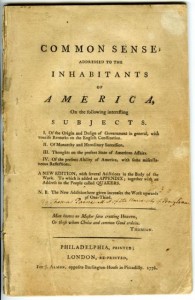
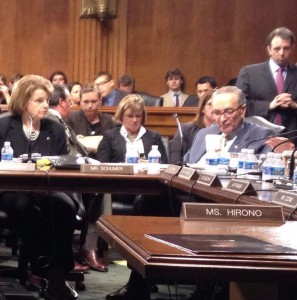
Free Flow of Information Act (Journalist Shield Law)
Current shield laws for journalists in the United States have broad exceptions for national security. This means that a prosecutor can override the law by showing how the information sought would “materially assist” the government in “preventing” or “mitigating” an act of terrorism. Initially, the shield law is set up to provide a confidentiality privilege for journalists so a police officer or FBI agent can’t get that information even with a court order unless there is an unusually strong justification for it. The latest version of the shield law as of September 2013 has a clause telling judges that it only covers legitimate news gathering. This of course makes very easy to declare any kind of news gathering you don’t like as illegitimate, and therefore the sources are not protected. Last month, the House of Representatives voted to approve an amendment to an appropriations bill barring the Justice Department from compelling reporters to testify about confidential sources.
Carey Shenkman:
- We are going to get a shield law but its going to be one that doesn’t protect any journalists or sources.
- It’s a lot easier for the FBI and the DOJ to just skip the investigation and go straight to the reporters. Why do they have to any work when they have the journalist getting all the sources for them.
- They subpoenaed records from the Associated Press last summer, they subpoenaed the source for James Risen who wrote a book and that actually appeared before the 4th Circuit of Appeals and was turned down by the Supreme Court for review.
- There’s been a push to try and pass a shield law before but Obama back in 2009 said he wouldn’t let any shield law pass that didn’t have a big national security exemption.
- What happened back in September is that there was a massive compromise with 2 Senators, Diane Feinstein from California and Dick Durbin from Illinois. They wouldn’t let this law go through unless it contained a big national security exception. Meaning any reporter covering national security would have to disclose their sources, and second it had a big exclusion for wikileaks and other organizations that published leaks.
- There’s actually a balancing test as part of this law that tells judges to consider if a journalist is engaged in legitimate news gathering. This is problematic because anyone can be a journalist, this has been the case since the founding of this country.
- They’re trying to put into law the fact that some journalists are legitimate and some are illegitimate.
- The internet has brought this country back to the time of its founding in terms of journalism because when the “press clause” in the First Amendment were passed, anyone could be a journalist.
- The “press clause” was defined as the right to publish.
- I believe we do need shield laws, but not this shield law.
- I think there is a big push by the institutional media to keep journalism as a profession, but that’s not what journalism is. Now with the internet, anyone can publish. As long as anyone as the intention to disseminate information, they should be protected as a journalist.
- When it helps the government the definition of the media is very broad.
- It’s going to be political suicide if Holder or anyone from the Obama administration pushes to send James Risen to jail.
- The DOJ argued in an affidavit that James Rosen was aiding and abetting his source.
- More and more, we’re seeing this administration trying to frame the news gatherer and the source, not as a journalist and a source but as criminals in a conspiracy.
- I was a radio journalist for 3 years. I used to work at the Center for Constitutional Rights where I met Michael Ratner and was involved with Chelsea Manning’s trial.
Guest – Carey Shenkman, has worked with several legal teams including Chelsea Manning’s defense, and legal research defining the protection of new media under the Bill of Rights and The U.S. Constitution.
——————————————————————————————
Afghanistan War, CIA Sponsored Terror, Civil Liberties, Criminalizing Dissent, FBI Intrusion, Guantanamo, Habeas Corpus, Human Rights, Iraq War, NSA Spying, Political Prisoner, Surveillance, Targeting Muslims, Torture, War Resister
Podcast: Play in new window | Download

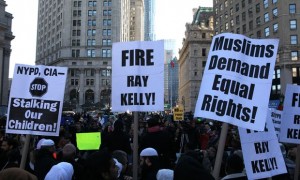
The Muslims Are Coming
Since the so called war on terror, thousands of innocent Muslims have been entrapped, surveilled, and their communities infiltrated while spending untold resources in search for the radicalized terrorist. In Arun Kundnani’s recent book titled the Muslims Are Coming, he carefully looks at the ideologies and strategies of law enforcement used to create the domestic war on terror. He unveils the disturbing processes of radicalization theories and racial profiling followed by law enforcement.
Arun Kundnani:
- There wasn’t any reflection of what the political causes might be of 9/11 or the political context that might give rise to Al-Qaeda.
- That discussion was basically censored at least in the United States.
- The war on terror has basically failed.
- Radicalization is the chief lens that security officials in Western government lock up Muslim populations.
- The idea of radicalization is that there’s this kind of ideology out there that turns ordinary Muslims into terrorists.
- The FBI and the police department both have the same model of radicalization which they claim tells you the process that someone goes through from being an ordinary member of the public to becoming a terrorist.
- Within that there are various indicators such as behavior or things that people might say or believe that are supposed to be signs that someone is traveling on this path to becoming a terrorist.
- This provides the basis for the very aggressive practice of surveillance that we’ve seen from both of those law enforcement agencies.
- It enables them to have a frame of reference to intervene within Muslim populations within the United States, to tackle the ideology that they see is the root driver for this.
- There are 4 stages in this model. Growing a beard, wearing Islamic clothing, changing the mosque that you attend, being active in a pro-Muslim in a social or political group.
- They often correspond to expression of political opinion.
- The FBI as of 2008 had 15,000 paid informants on its books. That’s a huge number given that half of the FBI’s budget is given to counter-terrorism. The sting operations using informants are the key method of dealing with this.
- The Stasi in Germany had one spy for every 66 East German citizens. It’s that kind of ratio that you can talk about a totalitarian system of surveillance.
- Muslims in America are probably experiencing the same level of surveillance that East Germans faced under the Stasi.
- The liberal take on the war on terror is not the same as the neoconservative take.
- As a Muslim you’re potentially bad and you need to prove that you’re not by the kind of ideology you express. That’s characterized the Obama period in the war on terror.
- The way that the word terrorism or the word extremism or radicalization works is that is serves to criminalize and demonize people who have radical political opinion, irrespective if they’re involved in any kind of violence.
- The structures of surveillance that have been set up in the war on terror, get recycled for all kinds of other purposes.
Guest – Arun Kundnani writes about race, Islamophobia, political violence, and surveillance. His latest book The Muslims are Coming! Islamophobia, extremism, and the domestic War on Terror was published by Verso Books in March 2014. Born and bred in London, he moved to New York in 2010 on a fellowship with the Open Society Foundations and now lives in Harlem. He is the author of The End of Tolerance: racism in 21st century Britain, which was selected as a New Statesman book of the year in 2007. A former editor of the journal Race & Class, he was miseducated at Cambridge University, holds a PhD from London Metropolitan University, and teaches at New York University
———


Ukraine’s Neo Nazis
We look at Ukraine’s neo-Nazis and Stepan Bandera and the legacy of World War II. Every important ministry in the Ukraine is now held by ultra-nationalists. The Ministry of Education, social policy, policing, prosecution and national defense are all headed up by people whose party is a direct descendant of the Stepan Bandera movement in the Ukraine during World War II. Bandera and his movement were responsible for the genocide of more than 500 thousand including Poles, Ukrainians and Jews. This fact is played down by the U.S. government, the mainstream media in the United States, the state of Israel and its defenders amongst the Jewish establishment including Abe Foxman of the Anti-Defamation League.
Joel Kovel:
- I think its important to recognize this utterly illegitimate US puppet government I think in large part because it doesn’t have any standing for the Ukrainian people as a whole – has to be defended by neo-Nazi elements which aren’t enormously plentiful, but plentiful enough and they will do the bidding of their masters.
- It started (Odessa, Ukraine) as a quarrel in a soccer stadium, and moved to Odessa. Odessa is an extremely important town it was one of the centers of world Jewish culture for a long time, still has 30 thousand Jews in it.
- The Ukrainian loyalists overwhelmed the other people and drove them into this building, they set fires within the building which led to a hideous massacre.
- One on one violence but also people jumping out of the windows, smoke inhalation.
- Watching it on youtube you saw the total savagery and unspeakable brutality of these thugs, they were laughing, having the time of their lives.
- There were police around, military around, they did nothing to stop this.
- Utterly mystified and denied by the mainstream media, including the main springs thereof, including the Wall Street Journal, the Washington Post, the New York Times.
- My parents were both born in the Ukraine. In the early years of the last century, one third of the Jews in the world lived in the Ukraine.
- You have a blood strewn, contentious history marked by an enormous amount of hatred and vindictiveness. I think all nationalisms are pathological frankly.
- Ukrainian nationalism was particularly virulent. We’re dealing with another brand of ultra-nationalism with the state of Israel, and they’re not unconnected with all this.
- Fascism being a right wing alliance between large bourgeois and nationalist forces using some kind of mythic or racist ideology to legitimate itself.
- Ukraine: there’s never been a solid national identity there’s a tremendous complex mixture of things.
- There’s a book called Organized Antisemitism in Contemporary Ukraine: Structure, Influence and Ideology.
- Of course the US thinks they’re manipulating the puppets so they can control them. You go down that road, there’s going to be a lot of tragedies as the puppet turns on the master.
- The number of Rabbis quoted as saying we’re getting ready to evacuate, we have plans. We’re ready to go in a half an hour. We’re afraid its going to happen again. Meanwhile, this Foxman is saying, don’t worry.
- New York Times had a headline about 3 or 4 weeks ago how this was all overblown Ukraine’s Jews say that Putin not antisemitism is the problem.
- That’s the headline in the New York Times. How could they do that?
- We need a massive onslaught against the program of lies and deception that is being waged by our national media in total lockstep with the imperial interest of the United States. I’ve never in my life seen journalism sink to such an abyss as it has and in the very least this is a front that we can occupy.
- It means a lot because the American don’t want this to be happening. This is something that our power system. One front is the ruthless critique of the media and the lies that our government is putting out.
Guest- Joel Kovel, scholar and an activist. In the former capacity he has published nine books and over a hundred articles and reviews. His books include White Racism, which was nominated for a National Book Award in 1972; A Complete Guide to Therapy; The Age of Desire (in which his work in the psychiatric-psychoanalytic system is detailed); Against the State of Nuclear Terror; In Nicaragua; The Radical Spirit; History and Spirit(1991) – Committee for Open Discussion of Zionism
——————————————————————

Please help support Law and Disorder, the show is now a sponsored project of Fractured Atlas, a non-profit arts service organization. Contributions for the charitable purposes of Law and Disorder must be made payable to Fractured Atlas only and are tax-deductible to the extent permitted by law.























